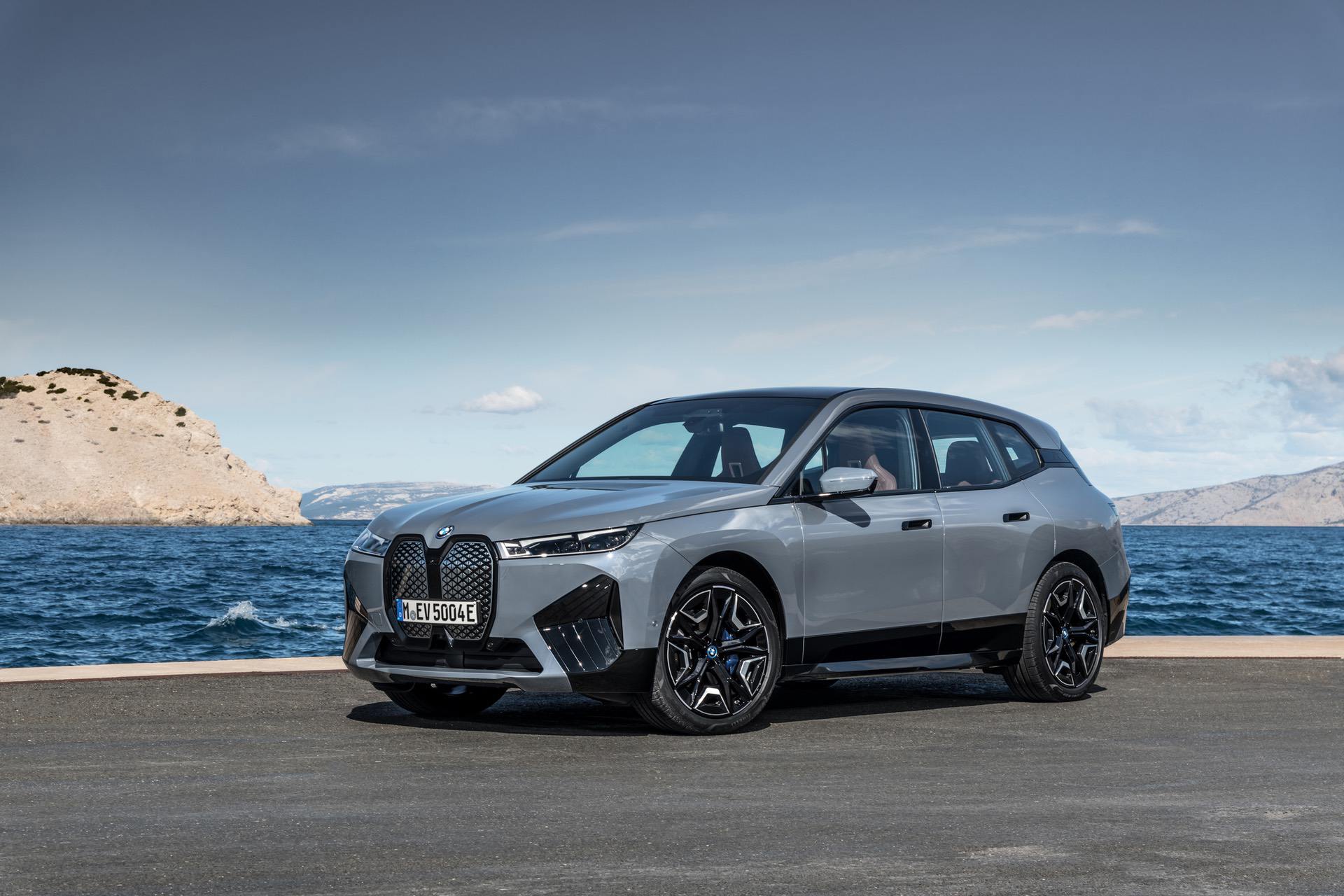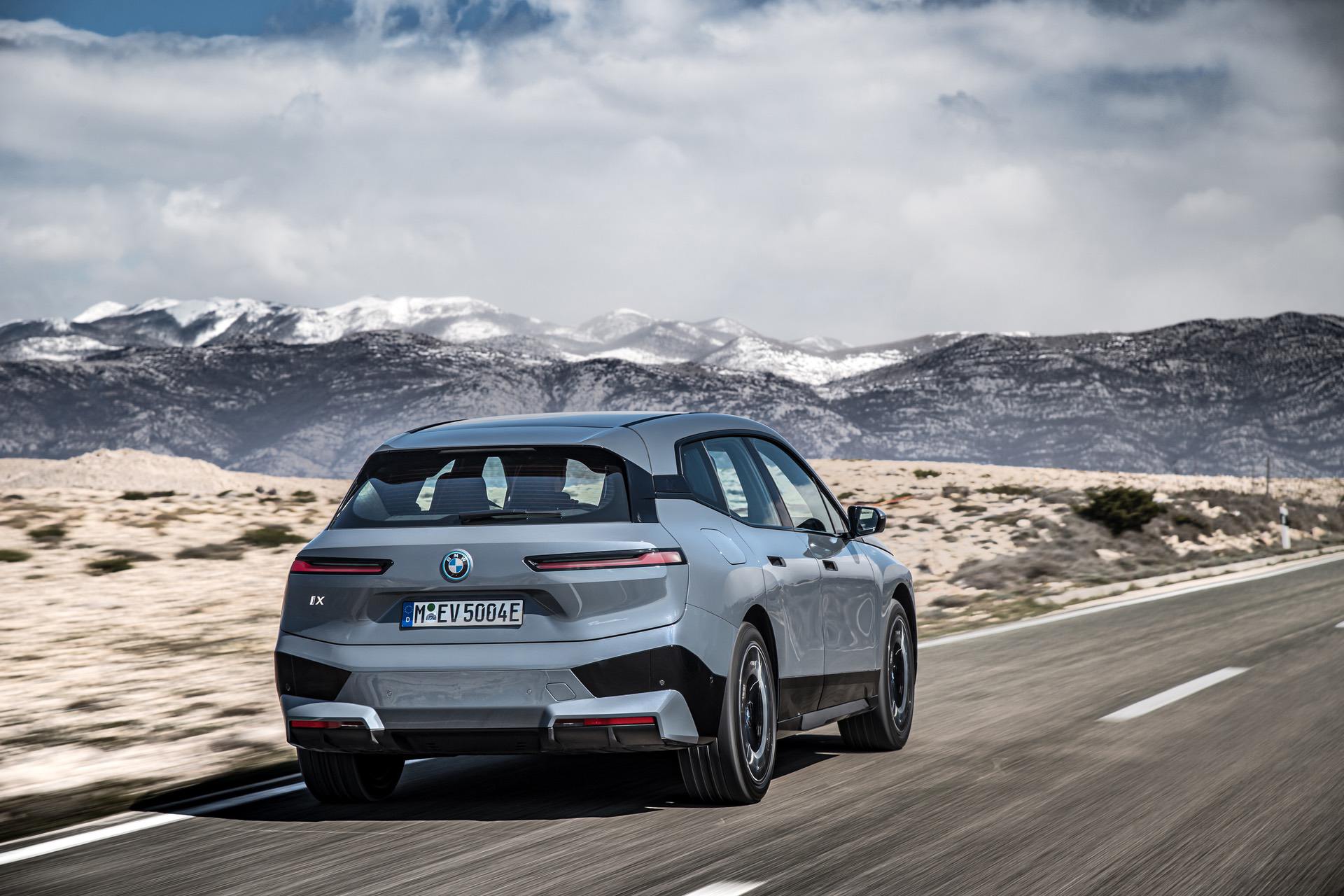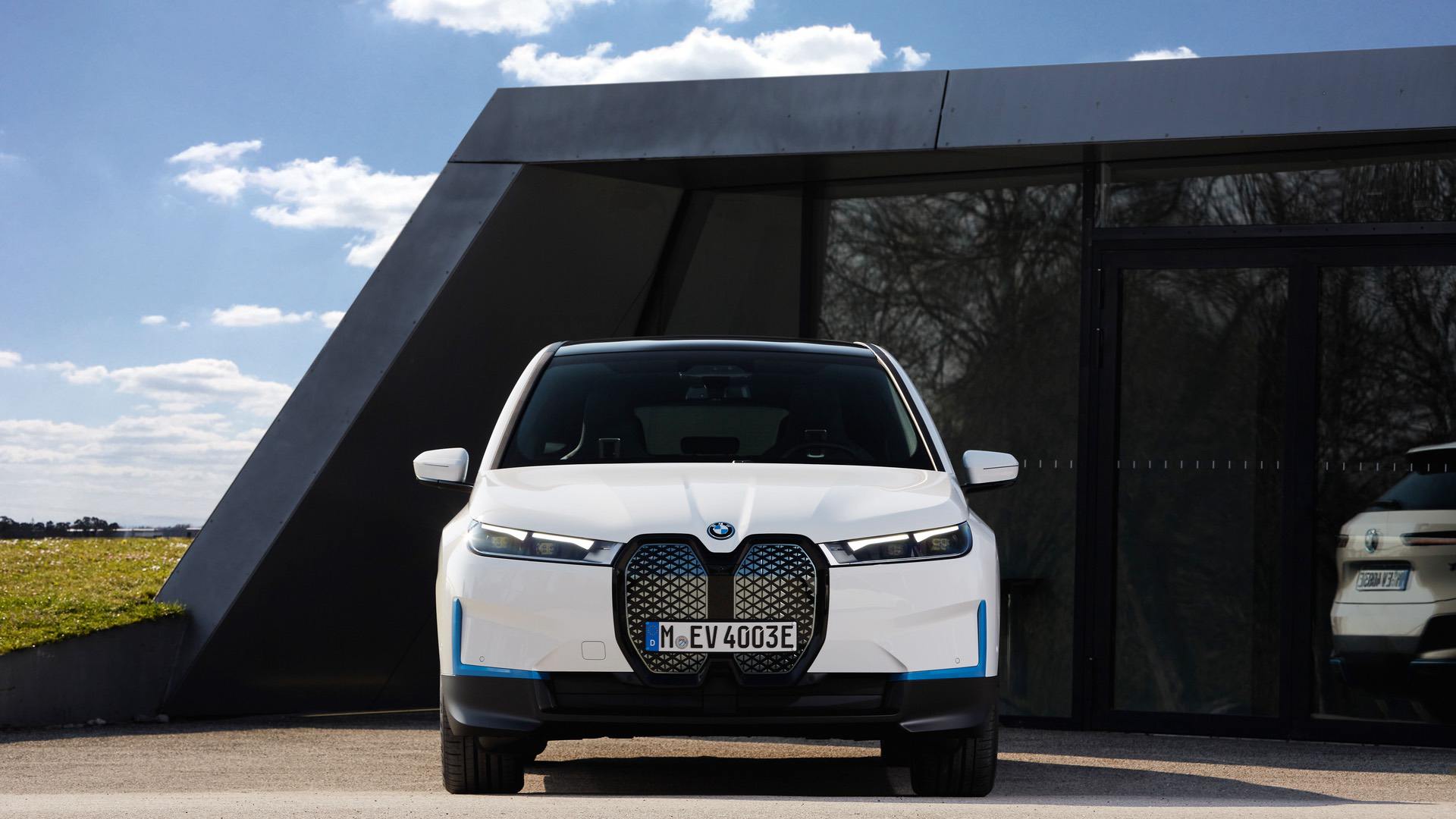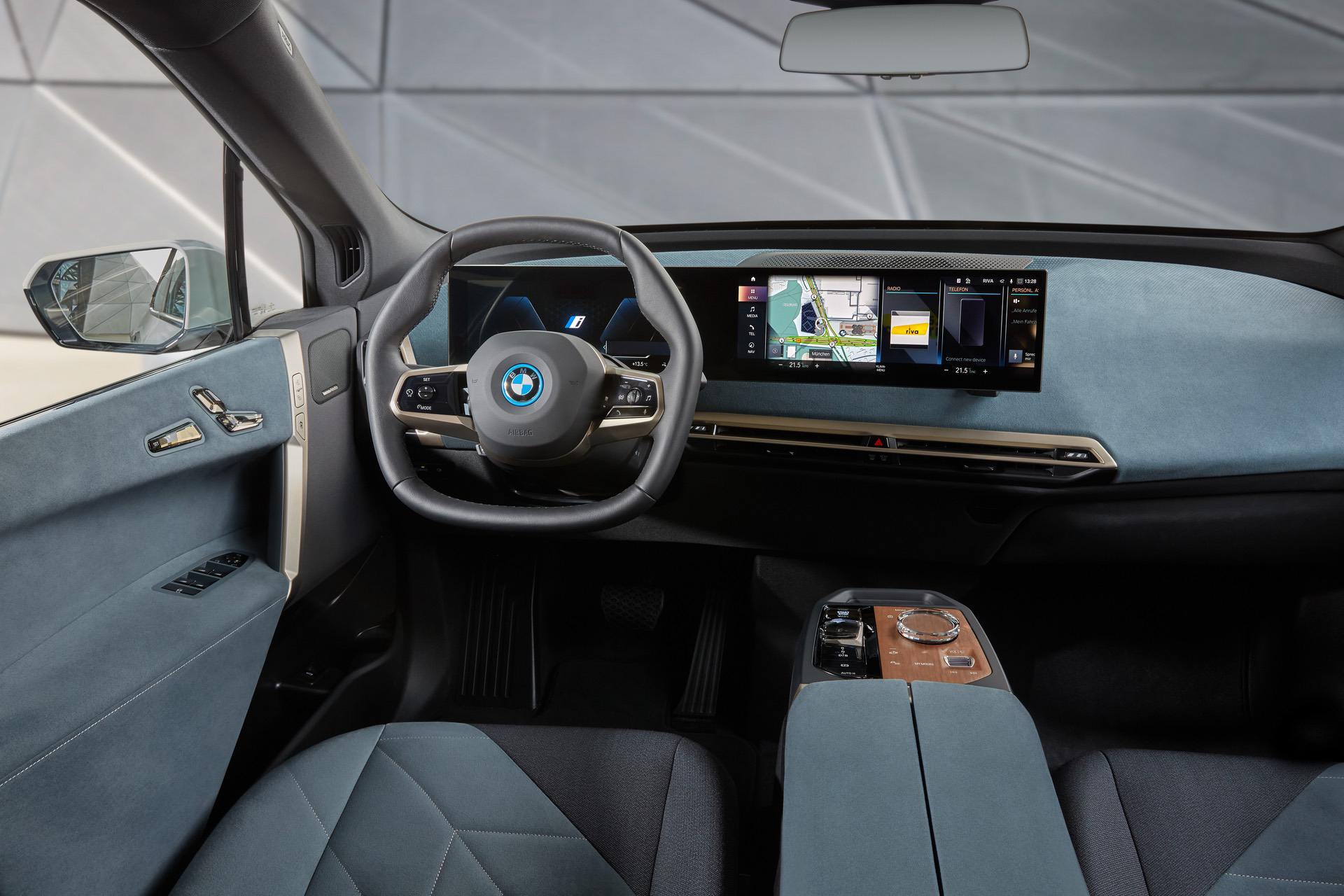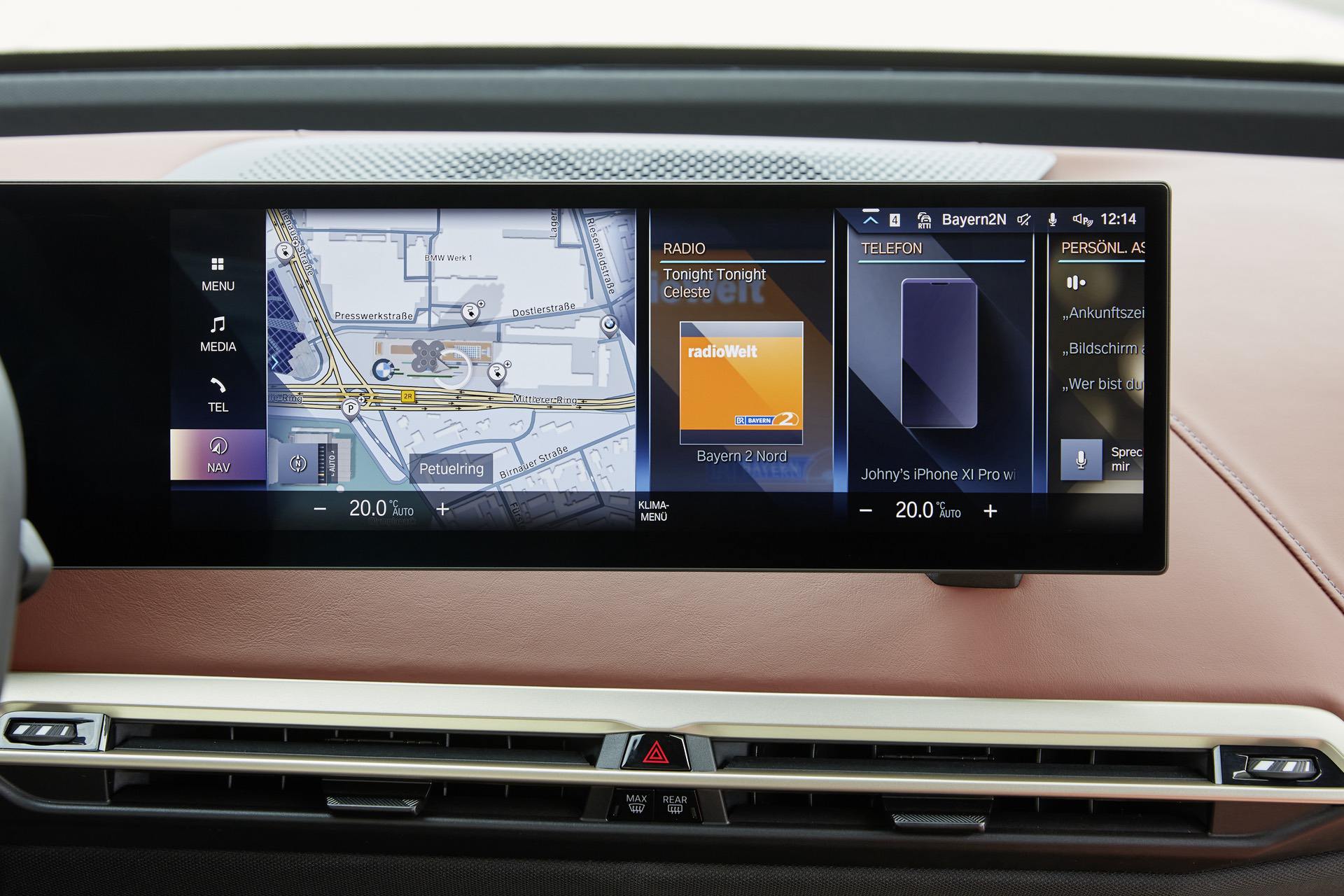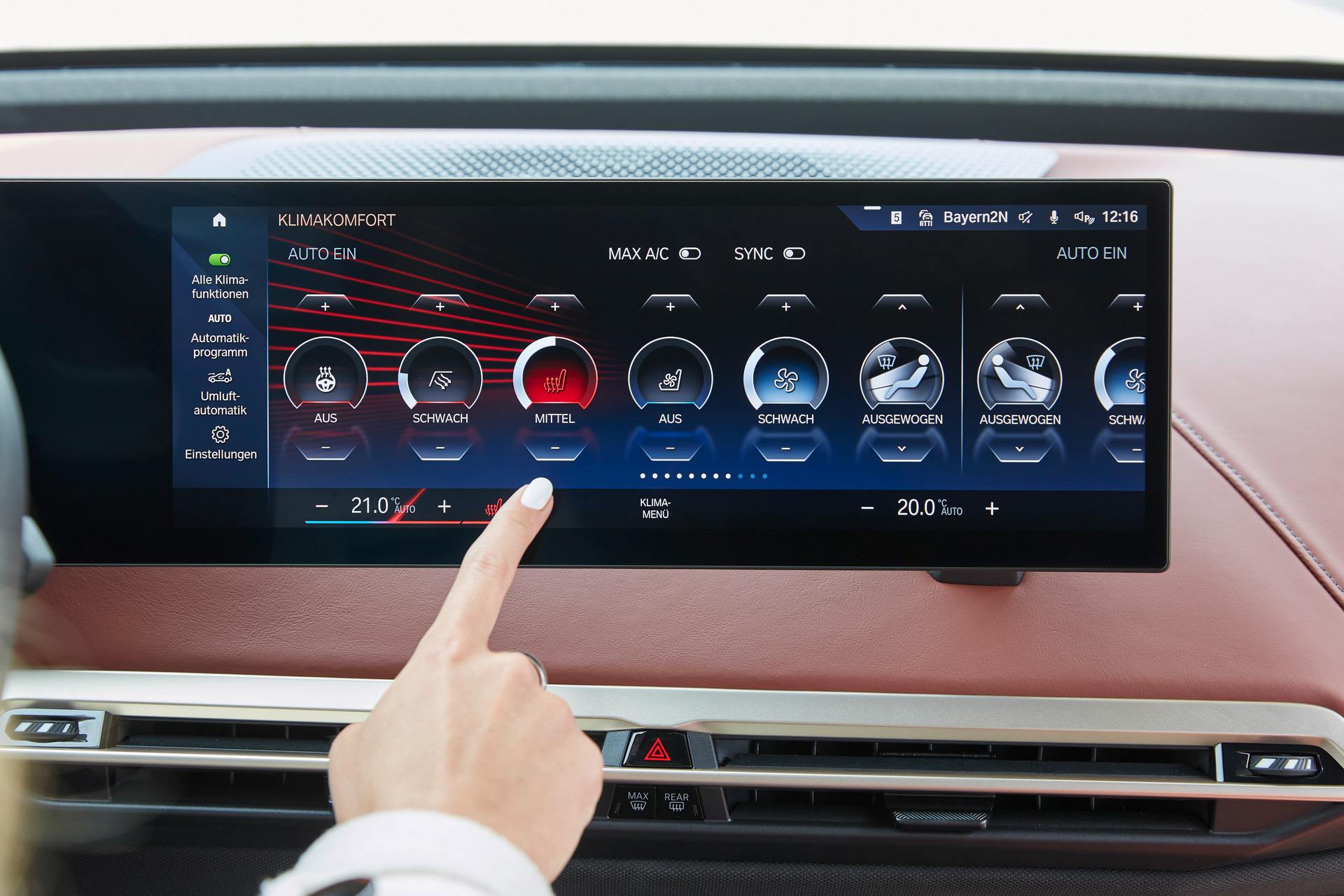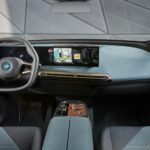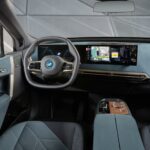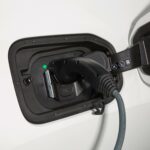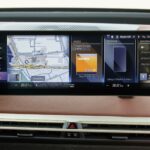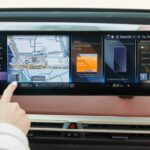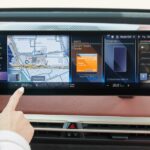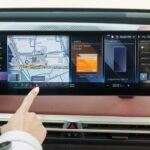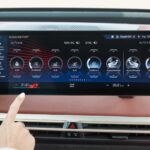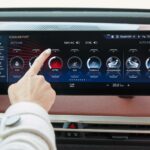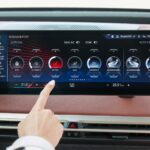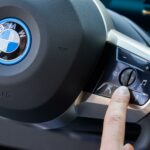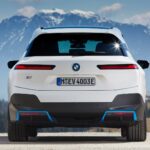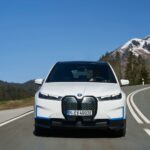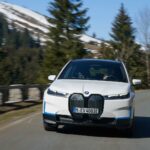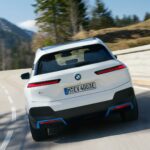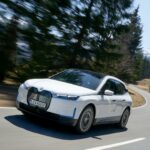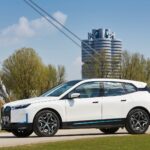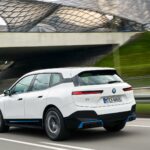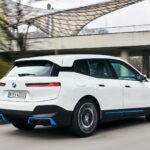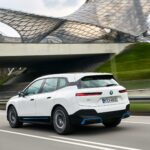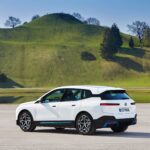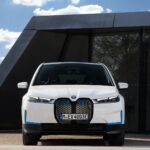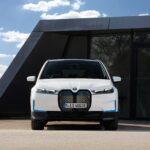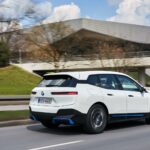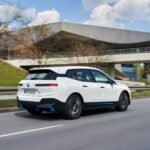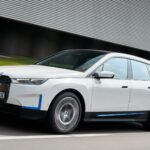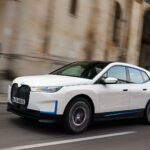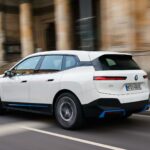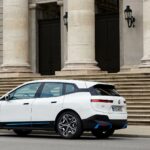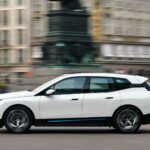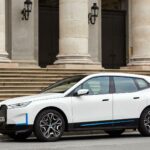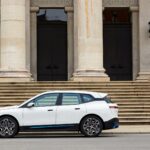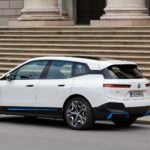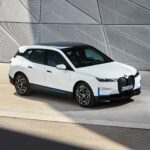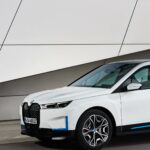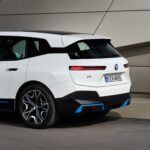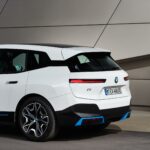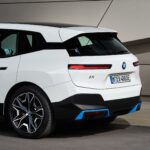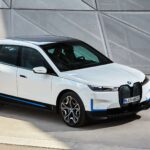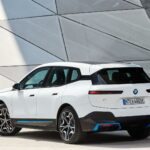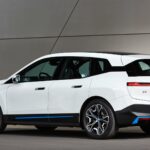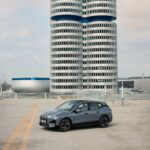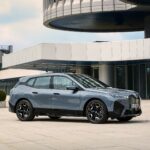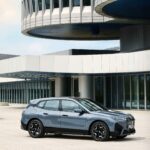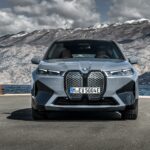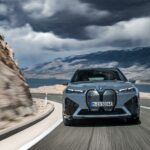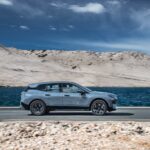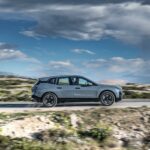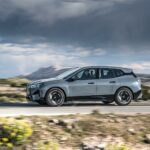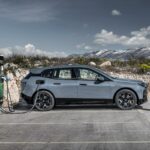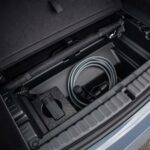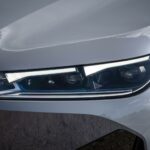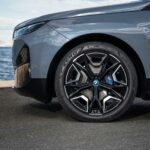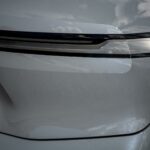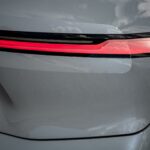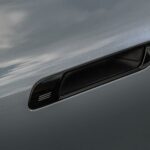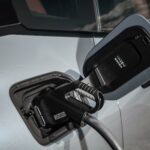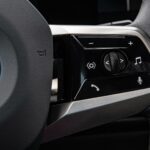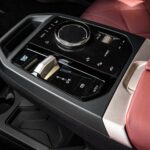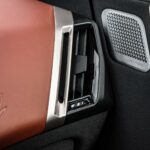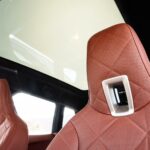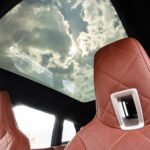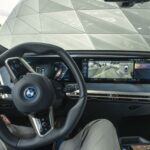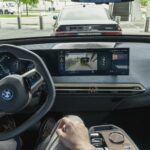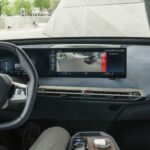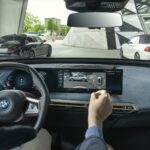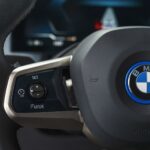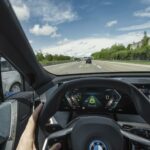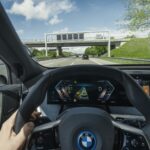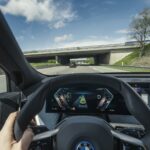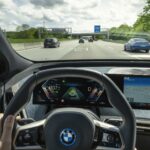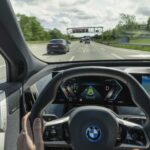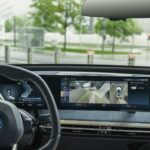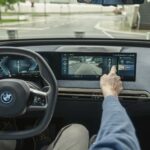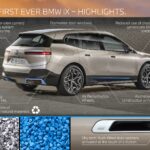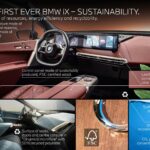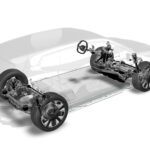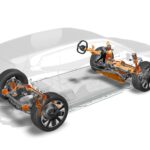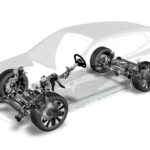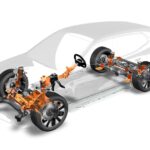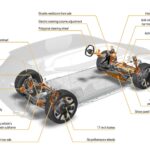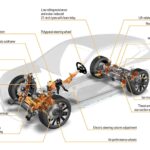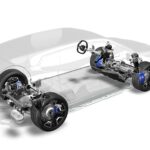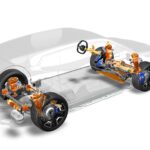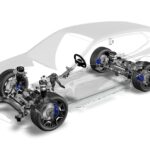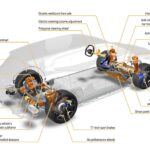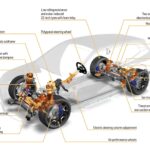We’ve already seen quite a bit of the BMW iX. Official photos of both the exterior and interior were already released a while back. However, BMW finally fully revealed the iX, including all of its technical specs and details. After seeing the full picture, it’s hard to not feel as if the iX is the most impactful BMW since the i3.
For starters, the BMW iX is the first bespoke EV chassis from Bavaria since the i3. Oddly, the BMW iX chassis is going to be a one-off and won’t be used for another BMW product ever again. That seems a bit at odds with modern manufacturing but it seems BMW changed direction, in terms of chassis development, after the iX was already in development. Still, that bespoke, lightweight architecture — developed from high-strength steel, aluminum, and carbon fiber — gives the iX an advantage over some of its competitors.
At market launch, in Q1 of 2022, there will be two models available — the BMW iX xDrive40 and iX xDrive50. The former will be the entry-level iX, packing specs and options akin to those of the BMW X5 xDrive40i. Which means it will get a net 71 kWh battery pack, dual motors, one at each axle, for a combined 326 horsepower and a very healthy 464 lb-ft of torque. According to BMW, 0-100 km/h (62 mph) takes 6.1 seconds, with a max range of 425 km (264 miles).
The BMW iX xDrive50 is going to be the headline variant, packing a new 105.2 kWh net battery pack and dual motors to make a very competitive 523 horsepower and 564 lb-ft of torque. BMW claims the iX xDrive50 can nail 100 km/h (62 mph) in 4.6 seconds, while achieving a range of 630 km (over 300 miles, per EPA).
BMW also announced a range-topping, high-performance model, the BMW iX M60, which will pack 600 horsepower from dual motors. BMW didn’t announced the M60’s official range figure yet but it did say that the iX M60 should consume around 21 kWh per 100 km (62 miles), which equates to around 2.9 miles per kWh. We’re assuming the M60 uses the same 105 kWh battery pack as the iX but BMW didn’t say so definitively.
Much like the BMW i4, the new BMW iX will have adaptive regenerative braking that can automatically adapt to different terrain, via GPS, traffic or various other road conditions. For instance, when approaching a junction, the iX will automatically use heavy regen braking, to slow the car down dramatically and recoup some energy. Or, while driving along a major highway, it will automatically use low regen braking, or none at all, so that when you lift off the accelerator, you get a freewheeling effect, for better efficiency. Alternatively, the driver can manually choose the amount of regen braking and override the automatic system if they so choose.
Also like the BMW i4, the iX gets a new high-efficiency heat pump that can use ambient heat, heat from dehumidification, and waste heat from the electric motors to increase efficiency. For instance, during stop and go traffic, during inclement weather when a high level of heat is required, the heat pump can increase efficiency by up to 40 percent.
The BMW iX also comes with advanced battery cooling and heating, a system comprised of three heating/cooling circuits, interconnected with electric valves and a shared expansion tank. If the temperature is cold outside, the system can use waste heat from the electric motors to warm up the battery. If it’s hot outside, a two-level cooling module, a refrigerant compressor, two evaporators, a water-cooled condenser, and a high-performance control unit combine to help cool the battery down.
All of that advanced cooling also helps with charging. The BMW iX xDrive 50 can charge its battery at 200 kW, making it one of the faster charging EVs on the market. With a battery charge at 10 percent, using a 200 kW DC fast charger, the BMW iX can recoup 150 km (93 miles) of range in just ten minutes. However, the iX xDrive40 can only charge at up to 150 kW, which isn’t as fast but has more compatible chargers, and can recoup 95 km (53 miles) in ten minutes. For the BMW iX xDrive 50, a 35 minute charge on a compatible DC fast charger will get the battery from 10-80 percent. Due to the xDrive40 model having a smaller battery density, it only takes 31 minutes to it to charge the same amount.
Both vehicles can be charged with 11 kWh Level 2 home chargers, obviously, but it will take a lot longer. An iX xDrive50 will take eleven hours to charge from flat to full on a Level 2 wall box charger. Again, due to the smaller battery, the iX xDrive40 takes less than eight hours. There will be an option to allow for 22 kW charging at home in the future, as well.
From the outside, the BMW iX is an interesting looking SUV. The front end is going to be controversial, due to its 4 Series-esque kidney “grille” design. There’s no getting around the polarization of the fanbase from the new grille but, at least on the iX, it’s far more functional than ever before.
For starters, the kidney grille panel on the BMW iX is actually called an Intelligence Panel, as it houses all of the front sensors for the car. Additionally, it houses a heating element, to prevent snow from hindering the sensors’ abilities. Taking things one step further, the iX’s Intelligence Panel is coated in a self-healing wrap. BMW was clever enough to realize that rock chips and road debris are going to destroy that big, flat, front-facing panel over the years and will look horrific if not maintained. So a self-healing wrap was applied, allowing all minor scratches and chips to be fixed simply by applying heat from a heat gun or even a blow dryer. Pretty clever.
Overall, the shape of the BMW iX is rather handsome. It has great SUV proportions, short overhangs, clean lines, and some interesting design bits. There’s clearly some inspiration from the BMW i3 in the D-pillar, the flush-mounted door handles look slick, and the aero wheels are really cool in person. The BMW iX is also impressively aerodynamic, with a coefficient of drag of just 0.25, making it one of the most aerodynamic production vehicles ever made.
I’ve seen the BMW iX up close, in person, sat in it, and fooled around with all of its features, and I must say that I can away rather impressed. It’s a much better looking car than I imagined it would be and its interior is truly fantastic. You can read my first impressions here.
Speaking of interior, the BMW iX features the most ambitious cabin of any Bimmer since the i3. In fact, it might even be more ambitious than the i3 because it pushes the boundaries of luxury and cabin technology for BMW. We’ve seen the demos of its new iDrive screen and digital instrument panel, so I won’t rehash it here. However, it does work significantly different than any other BMW infotainment and is a massive leap forward.
The steering wheel is an odd shape but it looks different from most BMW wheels and seems futuristic. All of the seat controls were moved from the side of the seat to the door panels, which is a bit Mercedes-Benz-esque, so I’m surprised BMW did it. Though, it does look a bit more premium, especially since all of the controls are Swarovski crystal in the xDrive50 and M60 models, along with the iDrive controller and drive selector. In iX xDrive40 models, the seat controls are metallic.
Above the driver, there’s also a massive glass sunroof with electrochromic shading. So while the roof doesn’t actually open, the push of a button can make it either opaque or transparent. This is new tech for a BMW but the Mercedes-Benz S-Class had such tech at least a generation ago. Still, it’s very cool.
The BMW iX also gets augmented reality navigation in the driver’s display. A live feed of the road ahead is projected onto the display, with digital graphic overlays added to it, to help the driver navigate tricky areas. For instance, an arrow will be displayed on the screen, over the live feed of the road ahead, to show the driver which way to go.
When you walk up to the car, it now performs “Great Entrance Moments”. Using UWB (Ultra Wide Band) radio technology, the BMW iX knows when the driver is approaching it and knows exactly where the driver is, within a few centimeters. Once the driver gets within three meters, the iX performs a bit of a welcome but doing an exterior and interior light dance, unlocking the car, creating a light carpet next to the door, and prepping the interior. While all of that is happening, the iDrive system is getting ready and all of the car’s interior seating surfaces are heating up, if it’s cold outside.
There’s also an interior camera that can be used as either an automotive selfie stick or a theft deterrent. Passengers can use the camera to take photos of themselves and share them straight to social media from the iDrive screen. The camera shoots in HDR during the day but also in sharp black and white night vision at night.
If someone tries to steal the car, the owner is notified by an alert on their smartphone. After which, they can record or take pictures of the perp with both the interior and exterior cameras and save all of the data to their phone. Snazzy.
The BMW iX xDrive50 will be the first iX to launch in Q1 of 2022 and will come with a starting price tag of $83,200, with $995 destination. That makes it barely more expensive than the $82,800 of the BMW X5 M50i. Considering the iX’s range, power, style, and tech, it seems like it’s going to be incredibly compelling for existing X5 customers. We’re all very curious to see how well it sells but, after seeing it in person, I think it will be a big hit among customers.


